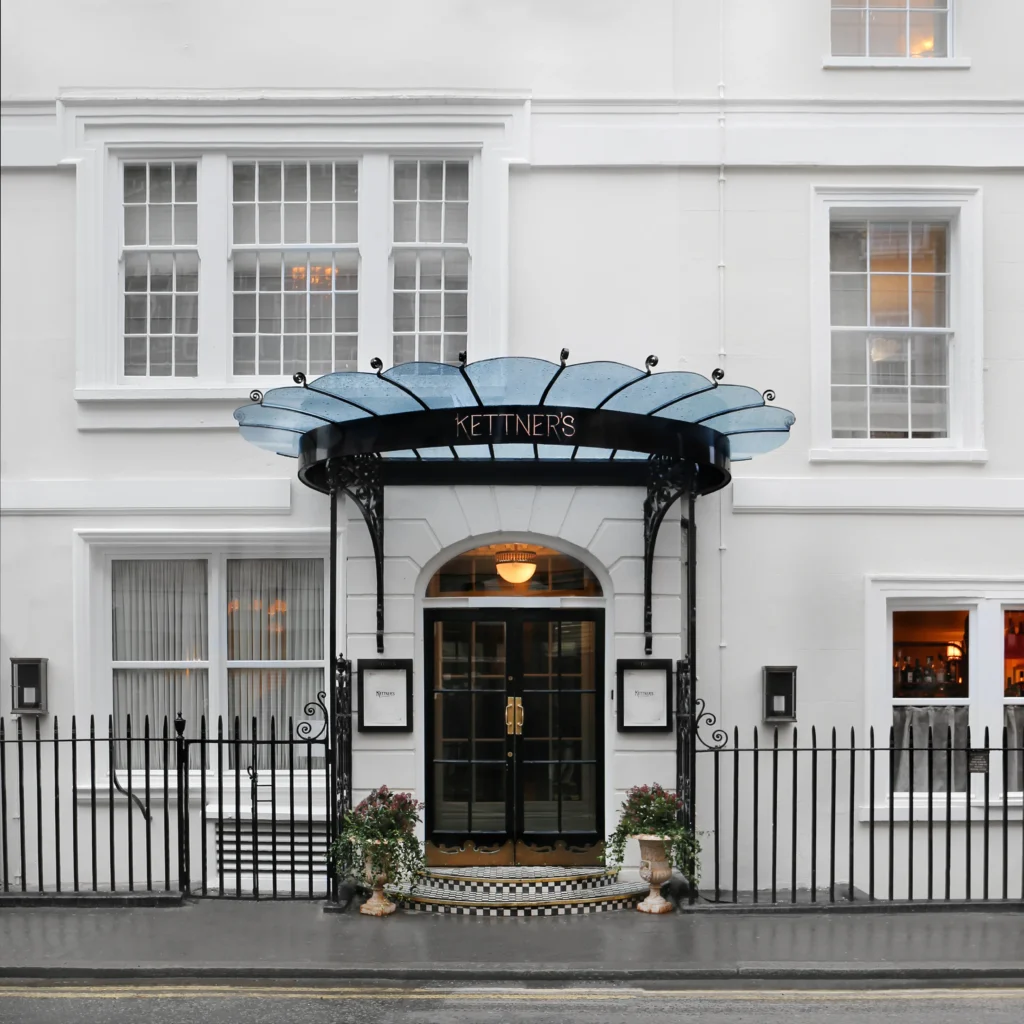
An exclusive member’s club chain, Soho House bought for £2 billion (in USD $2.7 billion) by a group. Ashton Kutcher, who is an American actor, and the other investors were part of this group.
London was chosen as the city to open the first club by the group in 1945. Now they have scaled up their business and they have 46 Soho Houses in different parts of the world, like Europe, North America, and Asia.
Popularity Among Celebrities
It has always been popular among the famous and A-list celebrities. One report states that Prince Harry and Meghan Markle’s first date was at the Soho House in London.

Listing on the New York Stock Exchange
In 2021, the Soho House, which is a private members’ club chain, was listed on the New York Stock Exchange, and its share value rapidly dropped. The only reason was that the company was not able to make a handsome profit; people thought it had lost its prestige and uniqueness.
Offer to Buy the Company
$9 per share was presented as an offer to buy the company. The closing trade value on Friday was low as compared to this price. But in comparison to August 2021, the share price was $14.21.
Consortium of Investors
The consortium of investors is led by the third biggest hotel group in the USA, MCR Hotels, which owns different and well-known properties include in New York, TWA Hotel at JFK Airport, and also the BT Tower that is present in London. Apollo arranged a deal through which the Soho House was removed from the New York Exchange and changed it into a private ownership company.
Existing Shareholders and Board Members
Existing Soho House shareholders like Nick Jones, who is the husband of Kirsty Young, and Richard Caring, who is the owner of the Ivy Collection restaurant. The board also includes Ashton Kutcher, who is a famous Hollywood star and the owner of MCR Hotel, Tyler Morse.
Mr. Morse said at MCR was “I am happy to be a part of the Soho House journey.”
“We have always appreciated and valued Soho House because it brought all the cultures together from all over the world under one roof. Now it has 46 houses. And we are optimistic about its growth with four new houses set to be opened soon.”
First Soho House And Other Venues Locations
The location of first Soho House was London’s Greek Street. It was opened by Mr. Jones above his restaurant, Café Boheme.Now, it has 46 venues. Some popular venue locations are Shoreditch House (in London), Soho Farmhouse (in Oxfordshire, UK), Soho House Bangkok (in Thailand), and Miami Poolhouse (USA).
Other Businesses
Soho House has many businesses other than clubs, including they have eight Soho Work office buildings and Scorpio beach clubs, which are available in Mykonos and Bodrum.
However, due to this further expansion, it has faced criticism for not providing exclusive services to members.
Potential Boost Due to Ashton Kutcher
Susanah Streeter (the head of money and markets at Hargreaves Lansdown) said that Soho House can now boost its profile due to the Hollywood star Ashton Kutcher has joined as a board member.
She also stated that MCR Hotels, Ashton Kutcher, and the other investors have to work hard.
Celebrity Director Joins Soho House
Susannah Streeter, Hargreaves Lansdown’s head of money and markets, observed that the arrival of a Hollywood star on Soho House’s board may be a feather in the cap, but good publicity alone won’t carry the brand through the next decade.
Investors Face Tough Challenges
For MCR Hotels, Ashton Kutcher and their fellow backers the priority will be to steady the House, whose business model is already under the microscope, and that’s a high-stakes balancing act.
Concerns Over “Exclusive” Status
Intensifying growth in more markets has some asking whether the gloss of the “exclusive” label is starting to fade, diluting the aura that underpins the brand’s premium pricing.
Broader Industry Challenges
Streeter, rounding out the picture, observed that the headwinds on the plate in the wider restaurant sector have intensified, with aspirational diners already reaching for their elastic-banded wallets.
Long-Term Investment Model
Saxon Moseley, who leads the leisure and hospitality practice at RMS UK, argued the market never quite understood Soho House. “The quarterly model simply doesn’t fit a business where it takes five years to see a full return on a new House,” he remarked. “You rip high capital at the start: design, acoustics, the kitchen—then you wait for the third January to pop your first healthy EBITDA.”
Membership Changes Raise Concerns
Some analysts now worry the erosion of the original membership lens—first a tight definition of ‘creative’, now a broader ‘creatively minded’ term—has weakened the brand. “The original promise was a Maida Vale attic; in the last year more of the sofa spots have become ‘anyone who writes for Instagram’, and the feeling in speak-easies is that exclusivity is fading,” Moseley explained.
Return to Private Ownership
In a release timed to the US market’s midday lull, CEO Andrew Carnie said the buyout would “eliminate quarterly noise”, enabling the business “to return to the slow, confident levers of hospitality.” The board aims to power the growth through “curated asset-light expansion”, a phrase that points to leasing more than flag transactions.
Long-Term Investment Model
Saxon Moseley, who leads the leisure and hospitality practice at RMS UK, argued the market never quite understood Soho House. “The quarterly model simply doesn’t fit a business where it takes five years to see a full return on a new House,” he remarked. “You rip high capital at the start: design, acoustics, the kitchen—then you wait for the third January to pop your first healthy EBITDA.”
Membership Changes Raise Concerns
Some analysts now worry the erosion of the original membership lens—first a tight definition of ‘creative’, now a broader ‘creatively minded’ term—has weakened the brand. “The original promise was a Maida Vale attic; in the last year more of the sofa spots have become ‘anyone who writes for Instagram’, and the feeling in speak-easies is that exclusivity is fading,” Moseley explained.
Return to Private Ownership
In a release timed to the US market’s midday lull, CEO Andrew Carnie said the buyout would “eliminate quarterly noise”, enabling the business “to return to the slow, confident levers of hospitality.” The board’s clear strategy for expansion involves selectively launching new venues, primarily leasing rather than buying, allowing us to scale judiciously without tying up excessive capital in wholly-owned flagship properties.
“I’m genuinely proud of everything our teams have achieved, and equally eager about the path ahead, because we’re still listening to our members and staying true to the same spirit that makes Soho House unique,” Carnie noted.






